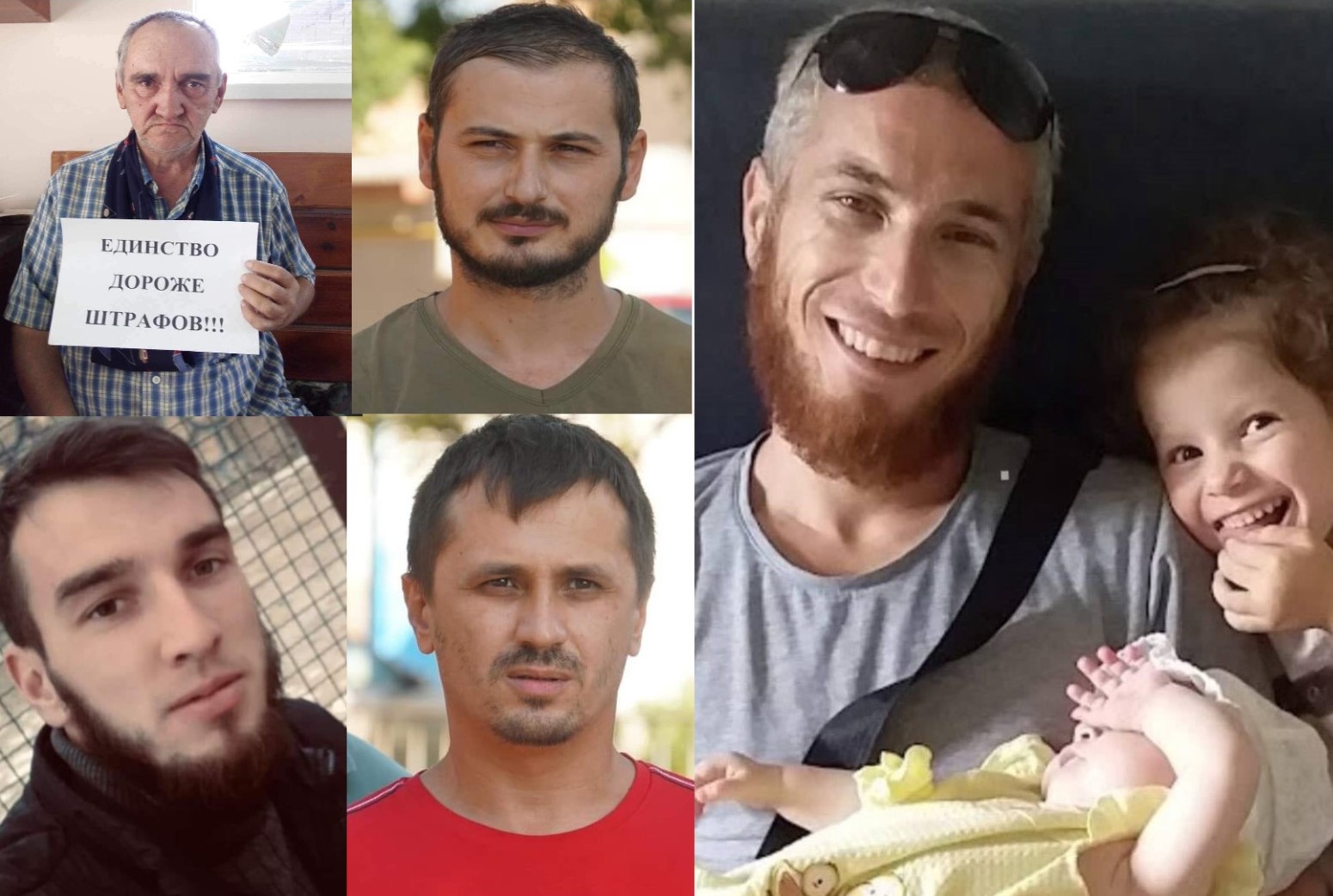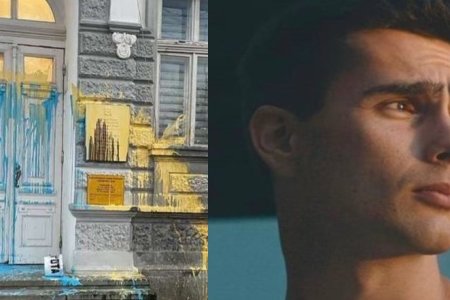
Russia’s FSB has carried out new armed ‘searches’ in occupied Crimea, with ten Crimean Tatars, including four journalists or activists from the Crimean Solidarity human rights movement taken prisoner and their families, including 24 children, left traumatized.
The early morning raids began soon after 4 a.m. in both Bakhchysarai and Dzhankoi (city and the district) with family members reporting that the armed men who burst into their homes were extremely rough and foul-mannered. It is not clear whether the brutal methods are for the reports that the FSB then pass to Russia’s propaganda media, or whether they have themselves become brutalized from taking part in the terrorization of entire families. It is harder to believe that they are trying to convince themselves that they are ‘fighting terrorism’ through such ‘operations’, since the FSB regularly bring with them the so-called ‘prohibited literature’ that they then claim to have ‘found’ during searches which they invariably prevent the men’s lawyers from attending. Although they turn the whole place upside, and terrify the children forced to witness such actions, they make no pretence of looking for anything illegal other than religious literature which only Russia bans.
Four men were seized on 5 March from their homes in Bakhchysarai: Rustem Osmanov (b. 1989) a journalist for the Crimean Solidarity human rights initiative; and Crimean Solidarity activists Mustafa Abduramanov (b. 1988); Aziz Azizov (b. 1995); and Memet Liumanov (b. 1988). All of them attended political trials and took part in other peaceful actions of solidarity with political prisoners and their families, for which they were previously subjected to harassment and administrative prosecution on absurd charges.
The other six Crimean Tatars are from Dzhankoi or its surroundings. They were probably targeted as members of independent Muslim communities, although Arsen Kashka (b. 1984) and most, if not all of the other men, also attended political trials, took part in flash-mobs in solidarity with political prisoners, as well as supporting their families.
Although Russia launched its conveyor belt of repression back in 2015, it was only in August 2022, immediately after an attack by Ukraine on a Crimean military base, that Russia’s FSB began targeting Crimean Tatars from Dzhankoi and Dzhankoi raion. The FSB are known to get bonuses or promotion from such prosecutions, and show brutal indifference not only to the men’s innocence, but to the fact that in many cases, their victims will be most unlikely to survive even the period of detention, let alone huge prison sentences. Remzi Kurtnezirov (b. 1962), for example, was forced to give up his position as Imam of the mosque in the village of Lobanove due to dangerously poor health. He suffered three strokes in 2017, which left the right side of his body not functioning properly. He has high blood pressure, with this reaching a critically dangerous level (230) during the armed raid. He also suffers from Type 2 diabetes.
Vakhid Mustafayev (b. 1976) is the current Imam at the mosque in Lobanove. Enver Khalilayev (b. 1967) lives near the mosque and is an active member of the Muslim community in Lobanove. Nariman Ametov (b. 1970) and Ali Mamutov (b. 1976) were also arrested.
The four Crimean Solidarity journalist and activists were remanded in custody for two months by ‘judge’ Yevgeny Pronin from the occupation ‘Kievsky district court’. The detention hearing for the men from Dzhankoi is due on 6 March, with the same outcome, unfortunately, near certain, despite Remzi Kurtnezirov’s Grade II invalid status and legitimate grounds for believing he cannot survive the appalling conditions of Russian and Russian occupation SIZO [remand prisons].
It is already known that the ten men are all facing illegal charges under Russia’s deeply flawed ‘terrorism’ legislation. The FSB have, since 2015, been using a highly questionable, and probably politically motivated, Russian supreme court ruling from 2003 to justify prosecutions and sentences of up to 20 years. The men are never accused of any recognizable crime, only of unproven ‘involvement’ in Hizb ut-Tahrir, a peaceful transnational Muslim organization which is legal in Ukraine. The 2003 ruling declared Hizb ut-Tahrir ‘terrorist’, without providing any explanation, and without informing the organization itself and human rights NGOs of the ruling until it was too late to challenge it. The FSB designate at least one, but sometimes many of those arrested, as ‘organizer’ of a purported ‘Hizb ut-Tahrir group’ under Article 205.5 § 1 of Russia’s criminal code. The others are accused of ‘involvement’ in such a ‘group’ (Article 205.5 § 2). The difference lies in the length of sentence, with those facing the ‘organizer’ charge almost certain to be sentenced to 17 – 20 years, while ‘involvement’ can carry from 11 – 16 years. Why the FSB designates one or the other charge seems largely arbitrary, although there have been cases where the charge was changed to the more serious ‘organizer’ because, for example, the person refused to remain silent about having been tortured. It has become standard for the FSB to also add the equally absurd charge of planning to violently seize power’, under Article 278.
The ’trials’ and huge sentences are based on flawed assessments by FSB-loyal ‘experts’ who are typically given transcripts (often translated with serious, possibly deliberate, mistakes) and encouraged to find ‘proof’ of involvement in Hizb ut-Tahrir in this or that word, or in the men’s expressed concern (for example) about Russia’s persecution of Muslims. The other standard element is the use of ‘secret witnesses’, whose testimony cannot be verified. No reason is ever provided by such alleged, yet entirely anonymous, ‘witnesses’ need to testify in secret, and the judges at the Southern District Military Court in Rostov typically block questions from the defence aimed at demonstrating that the ‘witnesses’ are lying or simply do not know the defendant. All of this has been strongly criticized by the UN General Secretary in his report on occupied Crimea in 2021.



